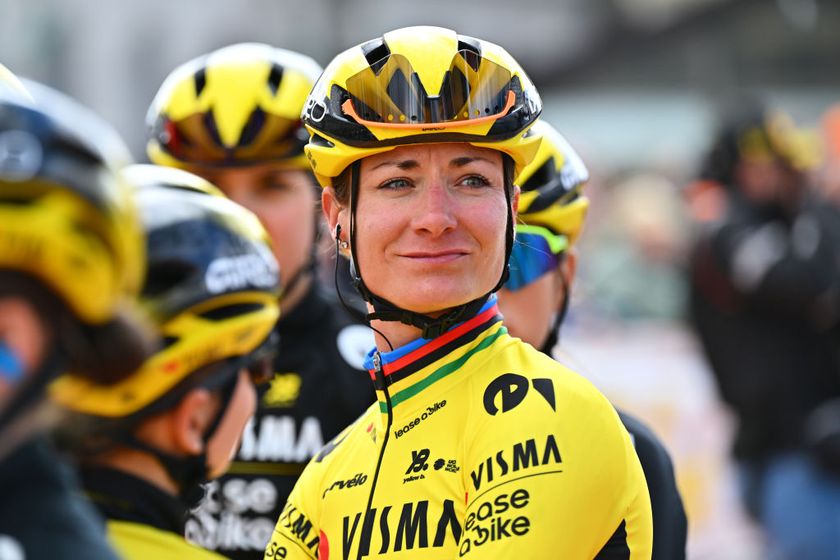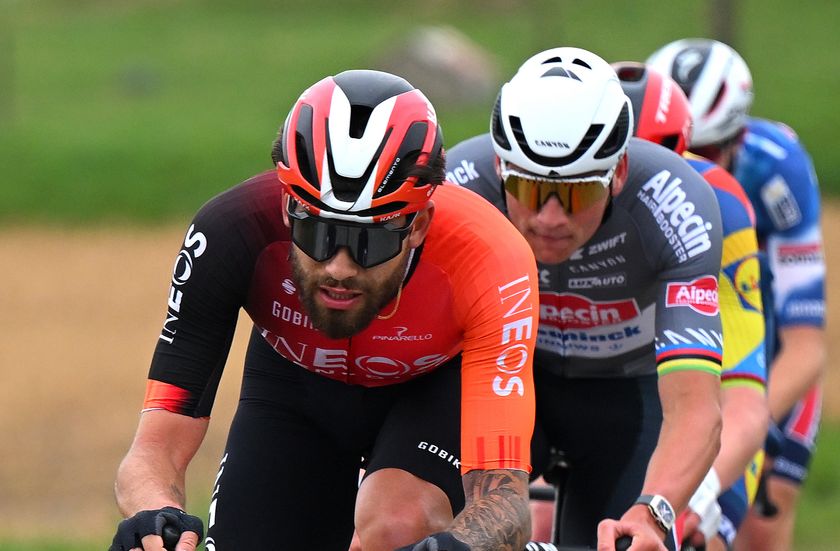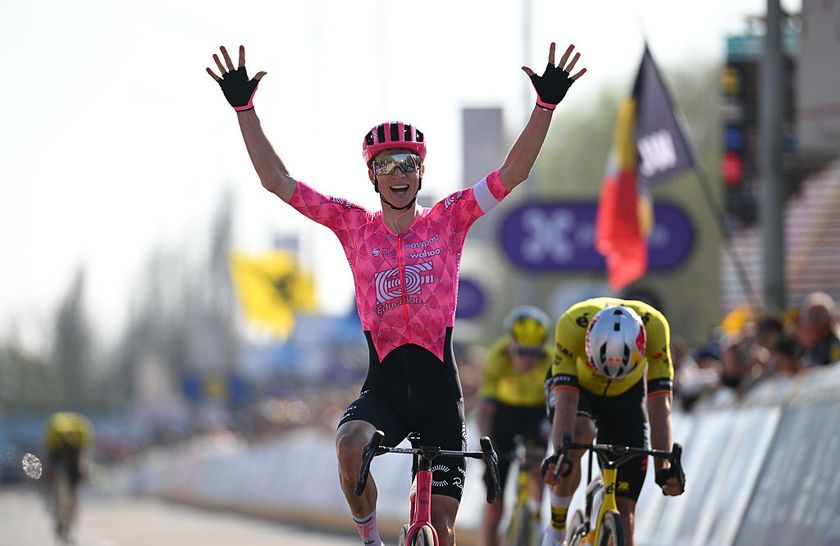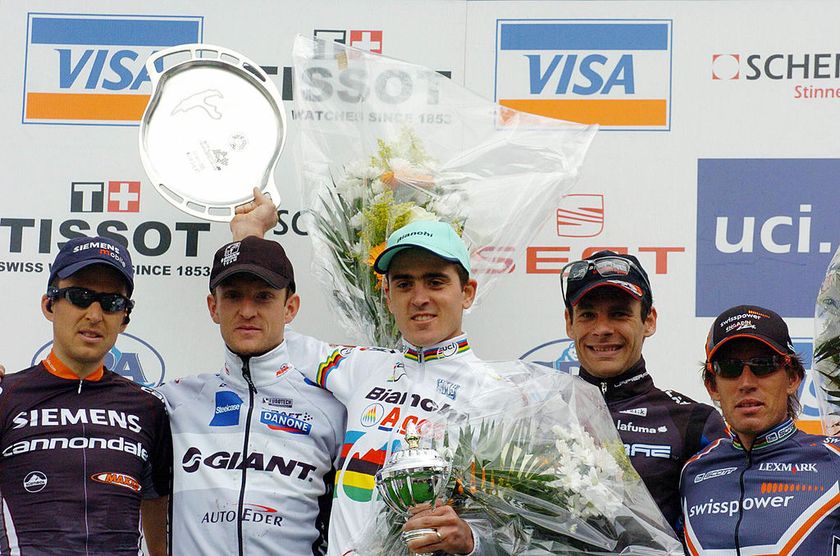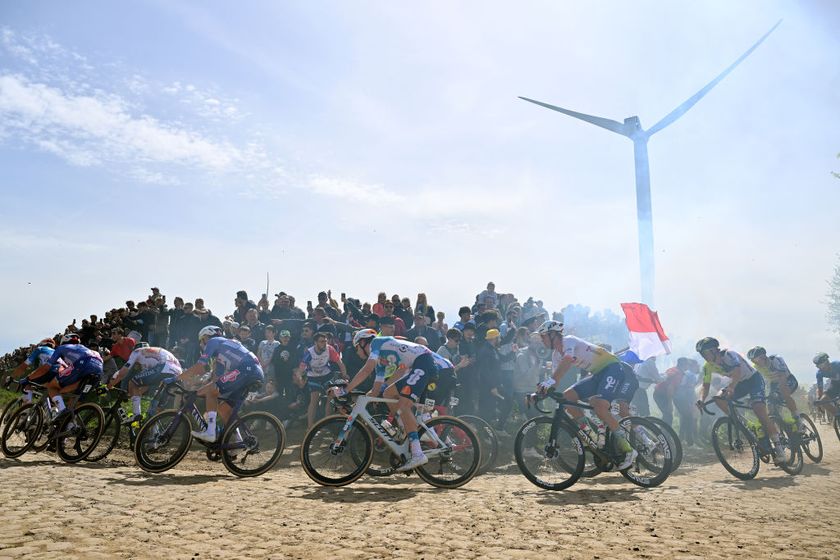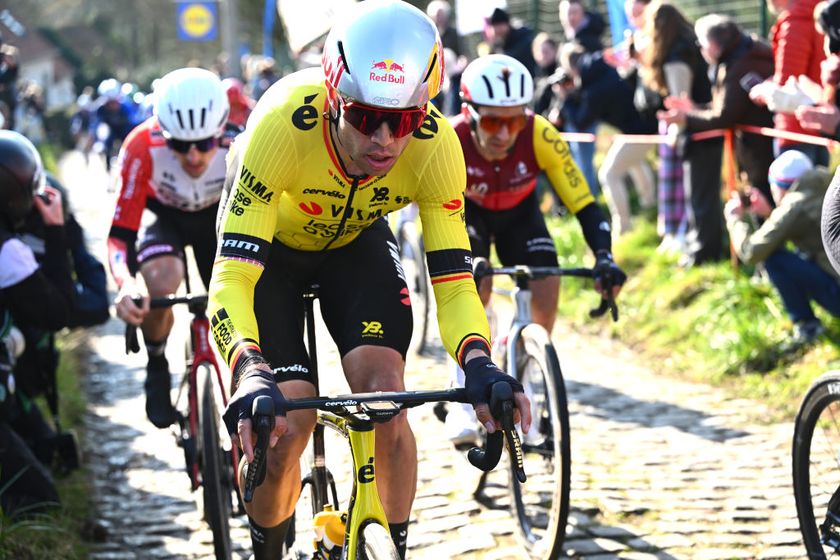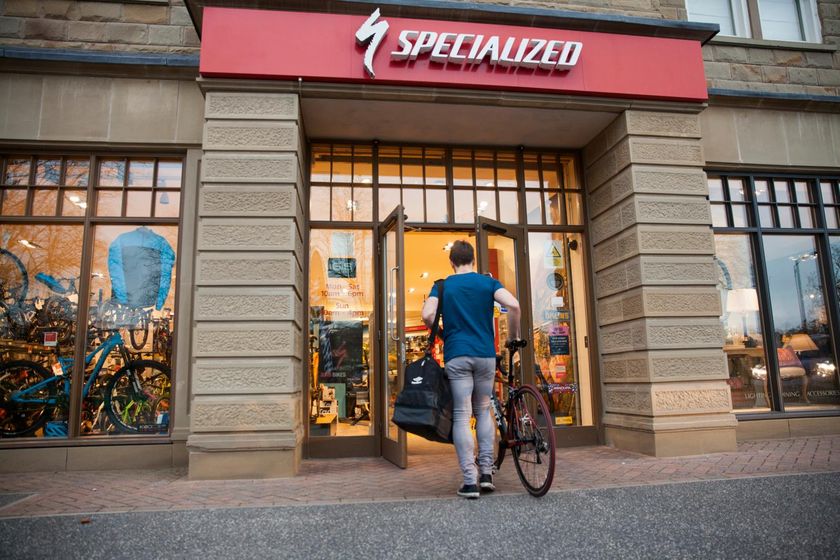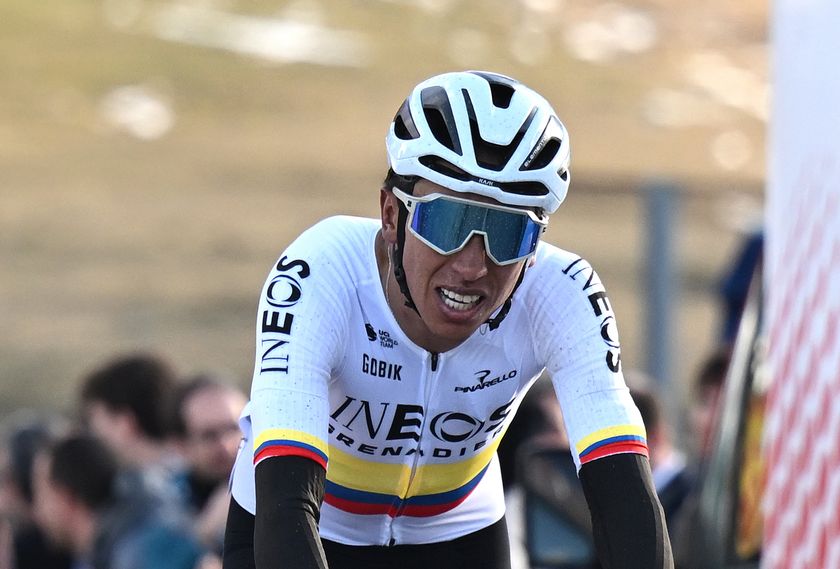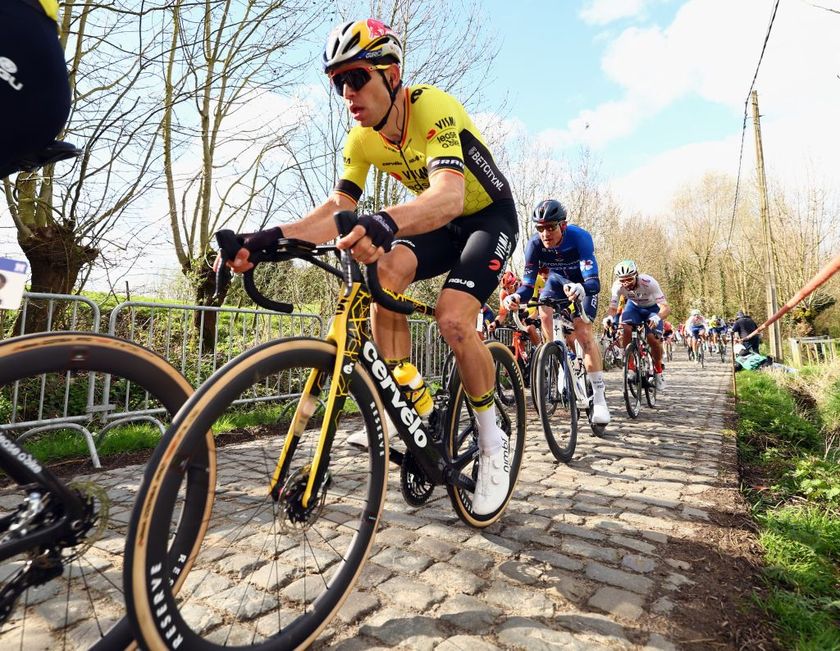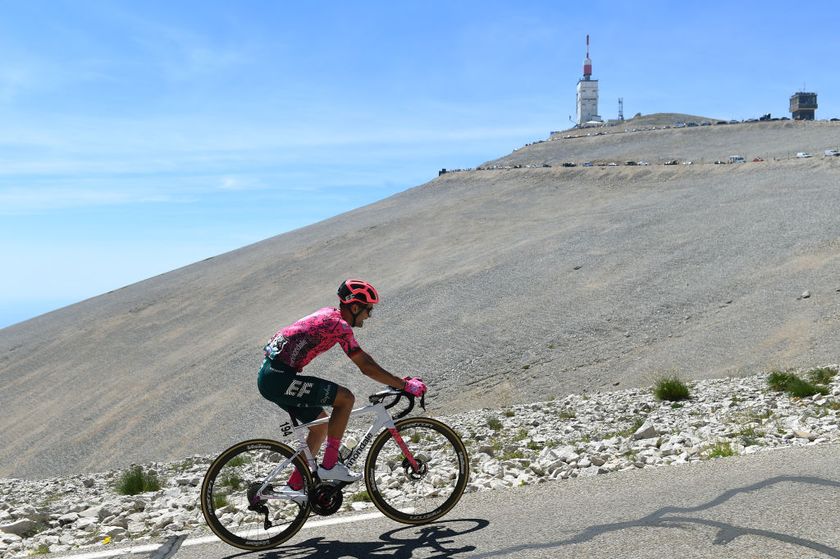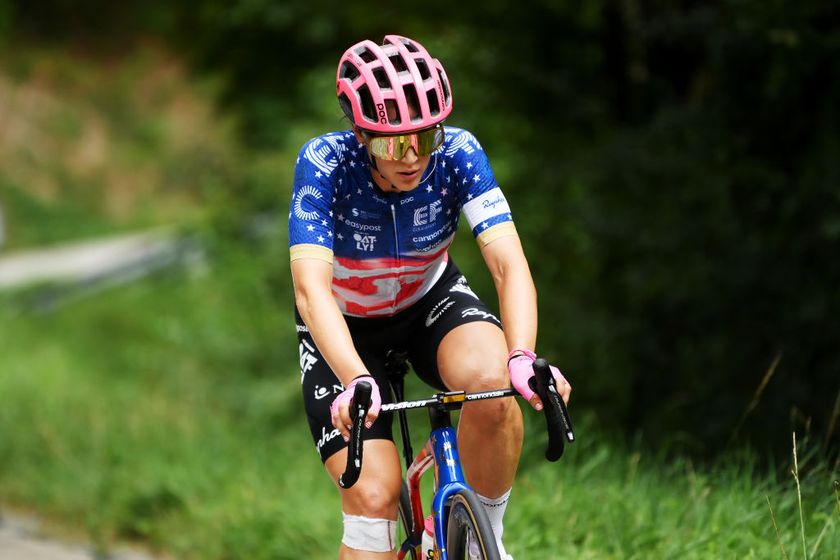Hammer Series: We're not trying to replace anyone, says Velon CEO
Graham Bartlett explains the business strategy behind the new race format





The creation of the new Hammer Series format of racing by the Velon group of teams aims to shake up the traditions of professional cycling and search for new revenue sources, with Velon CEO Graham Bartlett telling Cyclingnews of plans to expand the series to between eight and 10 events each season.
However, Bartlett insisted that Velon and Infront is not trying to replace the historic race organisers such as ASO, RCS Sport and Flanders Classics, who organise the Grand Tours and many of the one-day Monument Classics.
Velon announced on Wednesday that that the first Hammer Series race will be held in the Limburg region of the Netherlands in the Limburg Sportzone complex, between June 1-4 this year. Velon and Infront confirmed that all the Velon teams and other major teams from the WorldTour and Professional Continental division will take part. The Hammer Series will be part of a weekend of cycling events, with a bike expo, mass-participation ride, family events and even concerts, with organisers hoping to creating a festival-style atmosphere.
Instead of a traditional stage race format, the Hammer Series says it will focus on the strength and success of teams. There are no individual winners, with results based on rider placings as a team in three different events on three different days – the Hammer Sprint, the Hammer Climb and the Hammer Chase – each held on an 8-10km circuit to enable the public to see the action multiple times. The Chase, a team time trial, follows a handicap format, with teams setting off according to their results from the opening two rounds and the first across the line being crowned overall winners.
Infront and Velon have worked together on the innovative race format concept for more than a year, and claim to have the full support of the UCI. The traditional major race organisers such as ASO, RCS Sport and Flanders Classics have yet to react to the creation of the Hammer Series.
“We’ve been working hard for a long time to create a format that people can really get hold of. We tested ideas with the fans, the media and broadcasters. We obviously also involved the riders and teams,” Bartlett explained to Cyclingnews during a lengthy interview.
“There are three elements. One: we wanted it to be about the teams. Two: we wanted to make an impact in a particular place – let’s build a festival atmosphere where people can see more of the action more of the time. That’s also why we’ve compacted the racing into two-hour slots, not six hours. As a third point, we also wanted to create simple, but complex, levels that appeal to die-hard fans but also a broader audience.
Get The Leadout Newsletter
The latest race content, interviews, features, reviews and expert buying guides, direct to your inbox!
“We’ll roll out one race in 2017, and we’ve got several other locations that are interested in hosting other races in 2018 to make it into a true series with either three or four races. We want to get one right this year and then expand from there. The optimum number is between eight and 10, but we’ll be selective where we go. We want people to grasp the concept and work on it with us.
“The team aspect is unique, and the festival part of it is really important. We want to keep the teams in one place so that everyone can enjoy it and we can build the atmosphere around the event. There will be mass participation events; there will be entertainment too. We want people to go there for three days and enjoy the full experience, the racing and everything else that goes on.”
Embracing new concepts
Velon’s ambition and links to Infront – owned by Chinese company Wanda Sports – who themselves have done a deal with the UCI to create the end of season Tour of Guangxi WorldTour race in China, has worried other race organisers, with ASO clashing with the UCI over reforms to the WorldTour format and calendar.
Infront bought the Ironman triathlon business last year and invested in cycling by buying the endurance sports division of Paris-based Lagardère Sports, which owns the Hamburg Cyclassics race and a series of sportive events. Infront’s parent company, Dalian Wanda Group of China, was even rumoured to be making an attempt to buy the ASO, and thereby own the Tour de France.
Velon’s position and influence in the sport has been boosted by a 10-year deal with Infront. They already produce on-board race videos and in-race data, and also carry out collective negotiations with race organisers for participation fees for certain races.
The Hammer Series offers another, very significant, string to their bow. However, Bartlett denied any suggestion that Velon is trying to somehow muscle in on the race organisers and their television rights income.
“You can say that Infront and Wanda Sports are a competitor to ASO and RCS Sport, but then what difference does that make? They’re already competitive with each other,” Bartlett pointed out.
“The cycling season can’t just be the Hammer Series – that’d be rubbish. A full season includes the Grand Tours, the Monuments. If you look at other sports, you can see that if you bring something new, it energises the sport. Look at other sports such as sailing, snooker, golf, cricket or even tennis. By doing things differently they have improved as a sport and a spectacle. Look at the end of season tennis Masters. People said it’ll detract from the Slams but it doesn’t; it compliments them.
“Any truly international sport should look to embrace new concepts, where they’re good, strong and they work. We’re not trying to replace the Classics and the Monuments; they’re brilliant races. We think there’s room for something else that supplements what is already there.
“It’s all about what we’ve been saying from the beginning: if you want to develop, you’ve got to partner with other people. You’ve got to work with host cities and join it all up, so that you’ve got the teams, organisers and investors like Infront.”
Bartlett suggested that the Hammer Series could expand even into France, the heartland of ASO.
“Why not, going forward? We’re not ruling anyone out,” he said. “I don’t think you could get more traditional than the heart of Europe in Limburg. It’s held lots of World Championships and is a cycling heartland.”
Expect to pay to watch in the finish area
Velon is a private business-driven company owned and controlled by 10 of the 18 current WorldTour teams, including Team Sky, BMC, Quick-Step Floors and Trek-Segafredo. Velon’s long-term goal is to find new revenue streams to help the teams move away from total dependency on sponsorship and personal backers and so strengthen their position compared to race organisers.
To do it, they have become a race organiser themselves, with Infront ready to bankroll the much needed long-term investment.
“Infront is the race series backer,” Bartlett confirmed. “It’s a joint business venture between Velon and the organisers Limburg Sportzone, they own the race and partner with us to have it as part of the Hammer Series, which is a business venture between Velon and infront.
“Velon is a company that needs to make money. However, firstly we want to help our race organiser partners to put on a good race. That requires investment that can be recouped by media rights, sponsorship and other activities on site. The first thing is to make the race self-sufficient. Then, as we build the series, there’s of course a return back to Velon and to Infront, who have invested in it. It’s like any business partnership.
“It’s a long-term strategy. We know there’s not an instant pot of gold there. We know that. We’re prepared to invest long term that returns to our teams and our other partners.”
Fans should expect to pay to enter the finish area of the Hammer Series. That is clearly part of Velon’s business model.
“Why not? That goes on in a lot of races already,” Bartlett argued. “You can’t stand at the finish of the Tour of Flanders without buying a ticket. You can’t get anywhere near the finish of the Tour de France on the Champs Elysees without buying an expensive hospitality seat.
“We believe there is room for both. There will be ways to see the Hammer Series for free from the side of the road or on television. There will also be way to see it differently. If you want to watch it with a beer and sausage in your hand with some mates, there will be a ticket for you. If you want a VIP place, a glass of champagne, smoked salmon and a place right on the finish, there will be a ticket for you too. You can’t say that for most other sports. If you wanted to go the British Cup Final the other day, the starting price was £85 just to get through the door. We will tier things so that it works for everyone.
“I think the Tour of Flanders is the best example. On one side of the road there’s a VIP and hospitality area and on the others you can stand in the field for free. There are just as many people on both sides of the road. That’s the way cycling should be. It should draw on its unique heritage but it shouldn’t allow it to hold it back.”

Stephen is one of the most experienced member of the Cyclingnews team, having reported on professional cycling since 1994. He has been Head of News at Cyclingnews since 2022, before which he held the position of European editor since 2012 and previously worked for Reuters, Shift Active Media, and CyclingWeekly, among other publications.
